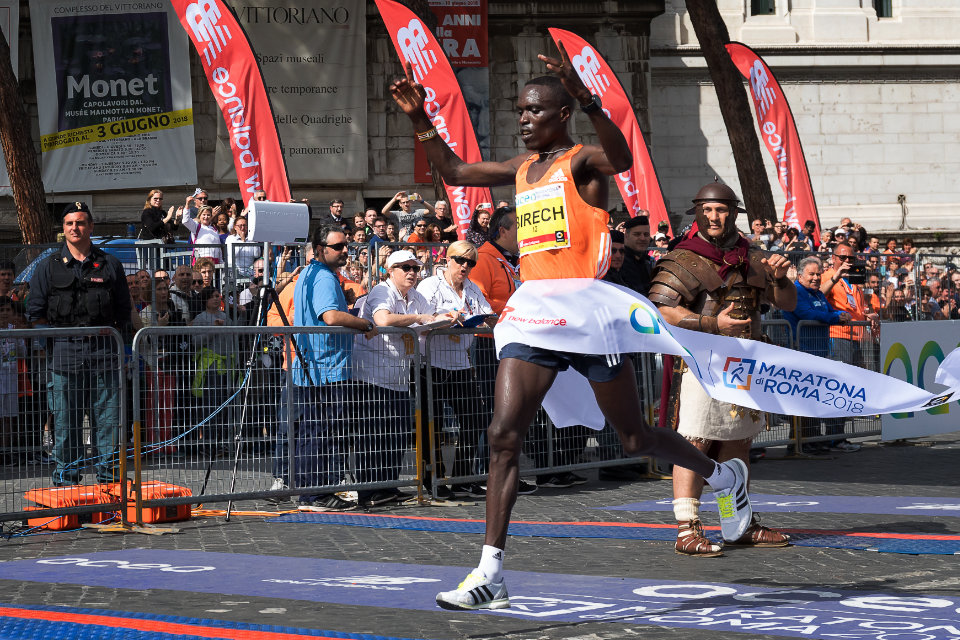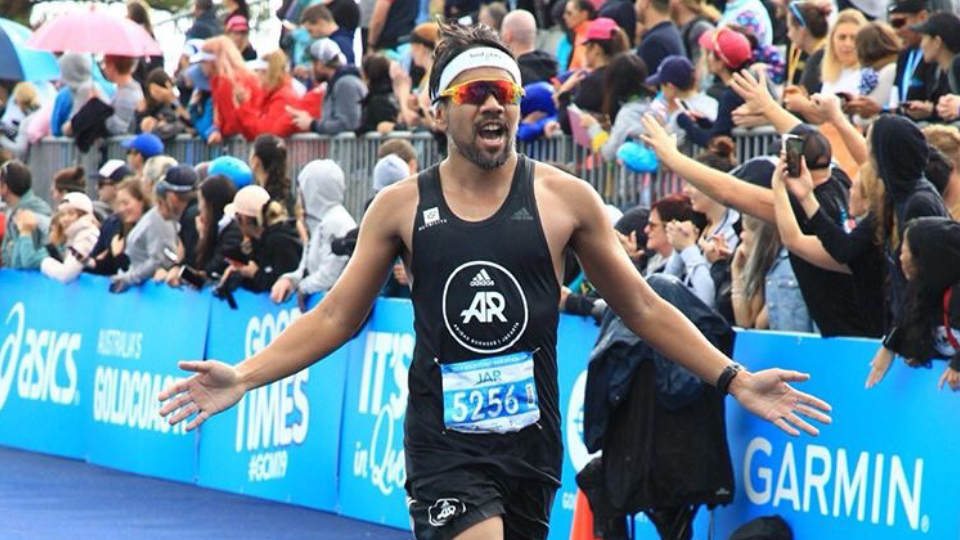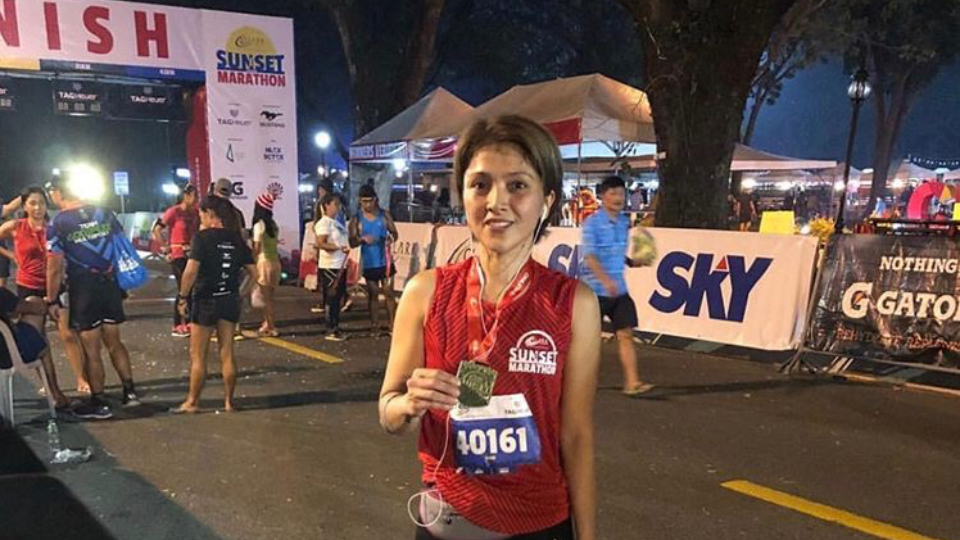Every runner has their own approach in terms of training themselves for a marathon. They create their master plan on how, what and when to prepare for the upcoming marathons.
We are super excited to speak to some of the most avid and elite marathoners in the running community and have them share with you their marathon training plan. So if you are training for a marathon race or want to know how to train for a marathon effectively, this article is definitely a must read.
Is Running a Marathon Hard?
Yes, running a marathon is physically hard on the body. A study on half marathoners and marathoners have shown that dehydration had not made the marathoning difficult. However without proper and adequate training, it’s very tough for a runner to complete a marathon race.
Proper training like the gym training includes the use of machines and weights to develop power and strength in the muscles of your legs, which can help to prepare the muscles for the stress imposed by the long races.
Some common marathon hazards such as blisters, chafing, sunburn, heat illness, muscle strains and sprains and extreme fatigue make the marathon race harder.
Although running a marathon could be tough, it has also become addictive as many runners aims to improve their best marathon timing from year to year.
What Does It Takes To Train For a Marathon
A marathon mostly is around 42.195 kilometres or 26.2 miles. For an average marathon training plan, it’s usually 16 to 20 weeks long. Typically, you will need to run three to five times a week and increase your mileage as your race day get closer.
On the other days, you can work on low intensity exercise such as yoga or Pilates and, most importantly, rest your legs to allow them to fully recover. It is important for runner to stretch their hamstrings, hips, quads and calves. (See: Simple Yoga Tips and Tricks Before You Hit The Road)
Which Training Plan Suits You the Most?
Remember to start slow if you are new to running. It is best to start with a training plan focused on getting you round the course, and not worrying about finishing your run or race in a certain time.
If you have run a few races and are used to running longer distances, gradually you can increase your running distance. In a long run, remember to listen to your body to avoid injury.
What pace should you be running?
Each training plan includes different techniques of runs, which require you to alter your pace to avoid burning out.
It can be challenging to work out how fast to run because everybody have their own training plan and ability to achieve their race or marathon goals.

What Is an Average Time for a Marathon?
It takes years of hard work and training to get elite-level times like the fastest marathoner, Eliud Kipchoge. For an average runner in Singapore, the marathon time is about 4:30:00. To hit a sub 4:00:00 race, runners need to maintain around a 5 1/2-minute per km pace.
Marathon cutoff times vary depending on location, but typically hover between six to seven hours.
How to Train for a Marathon?
It’s important to be honest with yourself about what level of runner you are. New and older marathon runners will need more time to build up to the long run and require more time to recover from the demands of training.
These runners may need a 20-week marathon training program, with an average of running five days a week, and never increasing their weekly mileage by more than 10 percent each week.
For the elites and seasoned marathoners, a 12 and 16 weeks marathon training plan, running at least four days a week would be sufficient.
If you are someone who rarely run and suddenly get hit by extreme motivation one day to sign up for your first marathon, please be patience. You may need more than 20 weeks to develop a relation with running and build a safe, sustainable foundation. You can consider hiring a good running coach to speed things up, and you may be ready for your first marathon race in 6 – 10 months later.
Next, you will have to fix on a marathon training plan. A good training plan should include things like:
- Build up to long runs (at least 32km)
- Rest day following by a long run
- Cross-training with speed work and hills running
- A pre-race taper
What is the Best Marathon Training plan?
Marathon training plans differ and there is no consensus on which marathon training plan is the best. However there are some key attributes to consider.
- Length: You will need more time to adjust to the training load if the plan is longer. A longer training plan also requires a greater time commitment and focus.
- Starting Mileage: A good marathon training plan needs to begin with an initial mileage that matches your existing fitness level. It’s important to skip the initial few weeks of training if you are already fit to prevent becoming detrained.
- Escalation: The faster the plan ramps up the mileage, the less time you have to adapt and supercompensation and also indicates a higher risk of burnout and injury.
- Longest Run: Some running expert advised a longer longest run as this could provide better preparation. However, some argued that it’s only true if you build up to these longer runs gradually enough that you can recover well.
- Recovery and Rest: An important aspect of a good marathon training plan is the amount of rest and recovery you get. With sufficient rest, you will be able to adapt and supercompensation. Running 3-4 days a week is optimal.
- Monotony: A training monotony can evaluate the ratio of training days to rest days, or easy to hard days. A higher level of monotony is associated with increased risks of overtraining syndrome and reduced fitness benefits.
- Easy Days and Training Days/Week: To maintain training monotony at a low level and obtain the best recovery, running 3-4 days/week is recommended. If you wish to run more frequently, it’s important to make the easy days as easy as possible.
Training Plan of 10 Marathoners
Let’s take a look at the marathon training plan for the following 10 awesome marathoners.
Marathoner: Amer Hamzah Arshad
Bio: Male, 45 year-old, Head of Chambers (Criminal) of AmerBon Advocates
Best Marathon Time: 3:25:17

RS: How do you prepare yourself with an upcoming marathon?
Amer: When I got a slot to run the Berlin Marathon in 2017, I decided it was time to have a more structured training plan. I hired a coach who came up with a proper marathon training plan. The aim was to do a sub-330 marathon. When the time came, I did 3:29:50. Last year, I was happy that I improved my time to 3:25:17 in London marathon.
RS: Can you share with us the details of your marathon training plan?
Amer: When training as a marathoner in any endurance sports, there are few essential things that one must take note.
Have a proper training plan as a general rule, my marathon training plan consists of various types of running; easy run, tempo run, interval, and long run.
Closer to the race day, I would also do other form of speed or hard session such as mile repeats. I make sure that my hard session is done every alternate day with an easy run in between so that I would be able to recover in time for the next hard session.
In terms of, I would spend 6 – 10 hours per week of my training. With the exception of long runs, my easy run and hard session would normally be an hour or slightly more than an hour.
In terms of mileage, I would run anything between 60 – 100 km per week. I do incorporate strength session to ensure that my muscles could withstand the planned training loads, and to prevent or minimise injury.
Do not forget to stretch after your training sessions, it is very beneficial to stretch after training include the elimination of lactic acid, prevention of injuries, and increasing muscle flexibility.
I also do remember to have a proper rest and recovery, it is also an important aspect of a training plan because it allows the body time to repair and strengthen itself in between workouts.
Ideally, I would like to sleep nothing less than seven hours every night, so that my body feels fresh and ready for the next day.
Marathoner: Runnermumgo
Bio: Female, 46 year-old, Housewife
Best Marathon Time: 4:55

RS: How do you prepare yourself with an upcoming marathon?
Runnermumgo: To prepare for an upcoming marathon, I’ll discuss with my husband the days and times I need to train. We also share our calendars, so we can see each other’s schedule. Since we are both busy, sharing calendars means that we can still make plans for dates and time for our kids on top of me keeping to the training sessions. Training time is important to me, but it is also very important to keep family stuff a priority.
RS: Can you share a breakdown of your marathon training plan?
Runnermumgo: My current training plan for a second marathon is 16 weeks long. I run 4- 5 days a week with recovery in every third week. Most runners do their long run a weekend, but my long run is on Monday.
It’s practical because the kids are in school and I can run in peace. The plan is based on time rather than length (miles or km). The longest time being 3 hours for my long run.
I like this concept because no matter what your pace or distance is, 3 hours still 3 hours of time on your feet. The plan also has speed work such as threshold intervals, hill repeats, half marathon pace and marathon pace runs. My weekly run is about 40 – 60 km.
During the month of August I ran 198 km, 21.85 hours. I do cross training to support my running. You train not just as a runner, but as an athlete so that you become efficient and help avoid injuries. I spend about 30 – 45 mins of bodyweight workouts 2 – 3 per week.
These include plyometrics, core, planks, pushups and lower body, such as calf raises, walking lunges, squats, etc. I also do yoga, Pilates, stretching and rolling.
I keep hard days hard, easy days easy. Hard days being speed work, plus bodyweight workouts, easy days being easy recovery run plus yoga or stretching. These allow my body not too sore or too tired for my next speed session.
Marathoner: Lisamarie Griffin
Bio: Female, Personal Trainer/Running Coach,
Best Marathon Time: 3:49

RS: How do you prepare yourself with an upcoming marathon?
Lisa: Great question, I usually sit down with a notebook and sets little goals/milestones. But the main prep I do is in my mind, this is where the marathon is truly ran. Strong mind = strong run.
RS: How does your marathon training plan look like?
Lisa: My normal marathon training plan is a simple 16 weeks in 4 months. For the first month, I will go for shorter runs with some tempo training 3 – 4 days during the week. During the weekend, I will go for one long run about 10 – 15 km.
The second month, I will have three runs during the week with speed training or tempo runs. During my midweek. I will go for about 6 – 10 km long run. On Saturday, I will go to the park and run with other runners.
As for Sunday, I will just run for 21 – 30 km. The third month, again with three runs during the week with speed training and tempo run. This time I include boot camp in it to boost up my training.
During the midweek, I will stick to 6 – 10 km run. I also go for Saturday and run as well with the other runners. I will run for 21 – 35 km on Sunday. Long run are every other week and the other is 21km, so the body can properly rest.
The fourth month, I will do a normal training and not running on Saturday. But on Sunday, I will be running for 40 km. So as the race getting closer, the last three weeks slowly tapering down and I will add hiking, swimming, and a weekly session of speed drills.
During the race week, I will go for a run about 8 km to relax my body and get ready for the marathon.
Marathoner: Berlin Del Rosario
Bio: Female, Software Engineer
Best Marathon Time: 4:58

RS: How do you prepare yourself with an upcoming marathon?
Berlin: I would draft a running calendar and try to keep up with it. For my first marathon, I did not set a goal. My only goal then was to finish the race without any injuries. For my second marathon, I hoped to cut down an hour of my first official time. So I planned to train in a sub 7 – minute pace.
RS: Can you share a breakdown of your marathon training plan?
Berlin: I have a simple marathon training plan. Two short runs (3 – 5 km) on weekdays after office hours and a long run on weekends (around 10 km) that gradually increases until I have reached around 30 km.
I will gradually increase my mileage every week. But I would have shorter runs on weekends every other 2 – 3 weeks to make sure I get proper rest.
Usually, Mondays are my rest day. I will do this for 5 months, then I would have my tapper runs 2 weeks before the marathon. I also do strength and cross training in between runs every week. The usual core, upper body, and leg workouts such as planks, push ups, squats.
Marathoner: Derek Li Shi’An
Bio: Male, 37 year-old, Family Physician with Raffles Medical Group
Best Marathon Time: 2:41:20

RS: How do you prepare yourself with an upcoming marathon?
Derek: I give myself around 12 – 16 weeks to prepare for a marathon. I do not do any cross training. Only running and stretching. Over the whole training block, the mileage will increase slowly over the first 4 – 6 weeks. Thereafter, I will hold a steady, high mileage all the way until the last 2 – 3 weeks of tapering for the race.
RS: What is your marathon training plan for an upcoming marathon?
Derek: As a general rule, the training load gradually increases throughout the whole preparation cycle. The first couple of weeks are about increasing the volume up to a high level and getting the body used to be run high mileage again, without getting any injuries.
For me, that is around 140 – 160 km a week. The basic scheme is a long run once a week, one short duration higher intensity interval day, one longer duration lower intensity interval day, and the rest is all easy runs in between. I aim to do 10 – 11 runs a week.
Initially, as I am increasing the mileage, the intensity of the workouts is usually lower and shorter. Once I am comfortable with the mileage, the intensity and duration will slowly increase. Sometimes, I will incorporate some higher intensity into my weekly long run as well. An example of a short interval workout should be like 10 x 400 m with 200 m jog recoveries at the 5k race effort.
A long interval would be something like a 3 x 3 k with progressively harder intensity. For a long run, I may make a progressive effort where the last 5 km would be close to the marathon race effort.
I got myself a coach in the last 2 years, so he dictates my training plan for me and saves me the trouble of second guessing myself when I try to create my own workouts. I don’t really keep track of the number of hours of running, but it is usually around 10 – 11 hours a week.
Marathoner: Agnes
Bio: Female, 36 year-old, Personal Trainer
Best Marathon Time: 3:11

RS: How do you prepare yourself with an upcoming marathon?
Agnes: I follow a training plan which includes running and strength training sessions.
RS: How does your marathon training plan look like?
Agnes: I would run 5 – 6 times a week. My marathon training plan would include: easy running (two times a week), one interval session, one tempo run, one running strength session in every week – uphill repeats and one long run on the weekend.
The training load and mileage would gradually increase over the time. To my running plan, I would always implement strength training, at least once a week.
My marathon training plan would change up and is not typical.
Marathoner: Fajar Arifan
Bio: Male, 37 year-old, Musician/Drummer in Alexa The Band
Best Marathon Time: 3:42

RS: How do you prepare yourself with an upcoming marathon?
Fajar: I always plan the year ahead at least 6 months before joining a marathon. I put the marathon as one of my a races of the year. Towards the race day, I can squeeze in other B and C races to support the training plan for the big race.
RS: Can you share a breakdown of your marathon training plan?
Fajar: Nowadays, I do more training for IRONMAN, so if I am doing a marathon, I do lots of recovery session in swim and bike form. My mileage per week, usually starts from 45k going towards 70k on peak weeks, that include one tempo one interval and one long run every week.
Recovery or easy session with swim or bike 2 – 3 times a week after each hard session. I usually started training three months prior to the race. In my marathon training plan, I gradually increase the intensity and duration towards peak week. Also, I will taper it down two weeks before the race.
Marathoner: Romela Cruz Sonon
Bio: Female, 40 year-old, Business Woman
Best Marathon Time: 6:00

RS: How do you prepare yourself with an upcoming marathon?
Romela: I really do not have proper training. I just go out, run for an hour almost every day. I join almost all of the local races and virtual races to keep me motivated. Virtual races have been one of my goal pushers, since I need to run to be able to submit a run.
RS: What is your marathon training plan for an upcoming marathon?
Romela: Now, I am preparing for a marathon this November. I have a running coach that helps me to train for my marathon. Here is my training program for Week one:
- Monday – 7 km
- Tuesday – 7 km
- Wednesday – 10 km
- Thursday – 7 km
- Friday – 9 km
- Saturday – 16 km
- Sunday rest
I will gradually increase my mileage each week. On top of that, I do incorporate core and strength training at the gym.
Marathoner: Katharina Klaeser
Bio: Female, 31 years-old, Key Account Manager
Best Marathon Time: 3:50

RS: What is your marathon training plan for an upcoming marathon?
Katharina: I start my training plan usually 3 to 4 months before the marathon where I run 5 to 6 times a week and different length and pace. From short tempo runs, to hill run as well as one long run per week to get the mileage in. I also do strength exercises and mobility work. Stretching is important too!
RS: How does your marathon training plan look like?
Katharina: I will do 6 runs in a week. Usually, I start with 50 km per weekend at my peak, which is usually one month before the marathon, it goes up to 100 km in a week.
The usual runs are 1 – 2 hours and long run last up to 3 hours. The maximum distance in one run is the 32 km. I will include strength training which focuses on lower as well as upper body parts to get my entire body prepared for the race.
Nutrition is important too, and I try to eat healthy and balanced. One month prior to race no alcohol. A set of my marathon training plan is going for a 8 km easy run on Monday. Tuesday, speed track about 10 x 400m. Wednesday, I will go for a 15 km endurance run.
As for Thursday, I will rest my body so I would not get injured. Friday, I will go for a tempo run about 10 km. Saturday, I will go for the hill run for an hour and Sunday, a long run for 25 km.
Normally, I will add more mileage after one month prior then the mileage goes down.
Marathoner: Kalun Nam (Kal)
Bio: Male, 42 years-old, Graphic Designer
Best Marathon Time: 3:07:43

RS: What is your marathon training plan for an upcoming marathon?
Kalun: Usually, I would plan to do a 16 week training program for the marathon.
RS: How does your marathon training plan look like?
Kalun: My training plan is pretty basic, I will run for 5 to 6 days a week. I will break down a simple training plan of mine below. Normally, I will gradually increase my mileage and tapering down before two weeks closer to the race day.
- Monday: Easy recovery run three to six miles
- Tuesday: Track workouts, for example (20 x 400m), (10 x 800m), (5 x 1,000m), (4 x 2,000m) or (2 x 3,000m)
- Wednesday: Easy recovery run five to eight miles
- Thursday: Three to five mile tempo run
- Friday: Rest or easy recovery run
- Saturday: Long run from ten build up to twenty two miles
- Sunday: Rest or easy recovery run
How to train for a marathon?
Training for a marathon takes patience, discipline and determination. We hope the above mentioned training plans shared by the marathoners could be a source of reference for you when you train for your next marathon race.
What is your marathon training plan? Share with us in the comments below.
More About Marathon Training Plan
How many weeks does it take to train for a marathon?
It takes usually 16 weeks long to train for a marathon but can be as short as 12 weeks and up to 20 weeks or more.
How much should I run to train for a marathon?
You should run at least 3 – 4 days per week and clock 20km to 100km when training for a marathon. You should gradually increase mileage in every week/month, depending on your training and body.
How to train for a marathon?
Be honest with yourself about what level of runner you are. Beginner and older marathon runners will need more time to build up to the long run and require more time to recover from the demands of training. Next find a good marathon training plan and stick to it. You can also consider hiring a marathon running coach to assist you.
What is the best marathon training plan?
Marathon training plans differ and there is no consensus on which marathon training plan is the best. However, there are some key attributes to consider such as length, starting mileage, escalation, longest run, recovery and rest, monotony, and easy days and training days per week.
Where can I find a free marathon training plan?
Free marathon training plans are readily accessible online. Consider utilising the training advice from RunSociety to create your own personalised marathon training plan. Local running clubs and online running forums are also excellent sources for free training advice and personalised plan recommendations. It’s important to select a marathon training plan that matches your current fitness level and aligns with your specific marathon goals.





